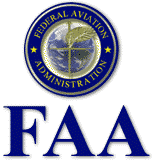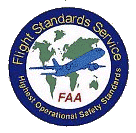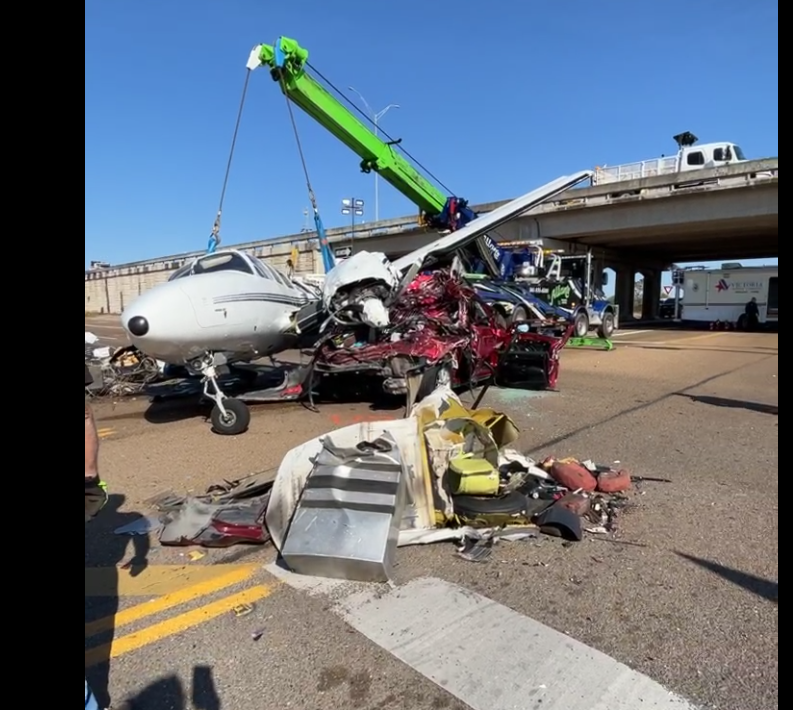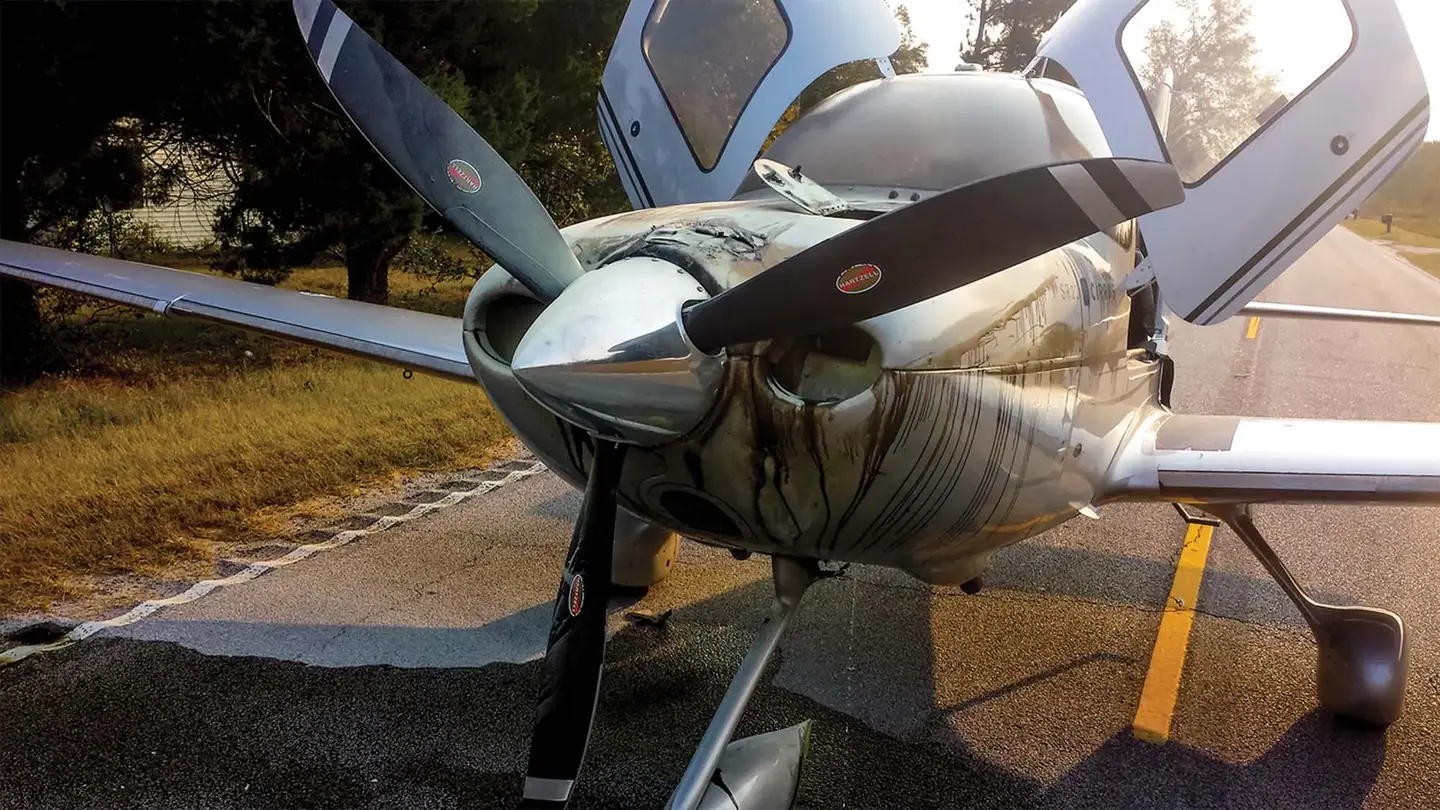The Pilot’s Lounge #10:Readbacks and Remedial Redemption
The lounge is still abuzz about the FAA’s bad-news “interpretive rule” on pilot readbacks and Atlanta Center’s well-intentioned but seriously-flawed “Catch A Bad Altitude” program. About the only light AVweb’s resident optimist Rick Durden can see for pilots at the end of this gloomy tunnel is that if you get nailed for an altitude bust or other deviation, you might be able to sweet-talk your way into the FAA’s excellent but underused remedial training alternative to certificate action.

 Things have started to quietdown here in the Pilot's Lounge since the FAA came out with its nutty interpretive rule stating that pilots are perse negligent if they do not hear an air traffic control clearance accurately. There isa deep-seated anger at some portions of the FAA among pilots, but the shouting andarm-waving has stopped and the letter-writing to the FAA and to Congresspeople hasstarted. AOPA has waded into the fray as well, which is good to know. It is also nice toknow that a number of the FAA inspectors who are pilots, who fly regularly in the realworld and who visit the Lounge are pretty unhappy with the rule as well.
Things have started to quietdown here in the Pilot's Lounge since the FAA came out with its nutty interpretive rule stating that pilots are perse negligent if they do not hear an air traffic control clearance accurately. There isa deep-seated anger at some portions of the FAA among pilots, but the shouting andarm-waving has stopped and the letter-writing to the FAA and to Congresspeople hasstarted. AOPA has waded into the fray as well, which is good to know. It is also nice toknow that a number of the FAA inspectors who are pilots, who fly regularly in the realworld and who visit the Lounge are pretty unhappy with the rule as well.
But, we finally got old Hack calmed down. He was pretty upset with the"gummint" until Dave pointed out that Hack hadn't even talked on the radio inhis Super Cruiser in over five years and hadn't spoken to an air traffic controller sincethe days of the Civil Air Regulations. That made Hack so happy he immediately went flyingand left the rest of us to work on how to deal with an FAA rule which is so arbitrary andcapricious as to be a threat to safety of flight.
Remedial Training
 I'm trying to find a bright side to the interpretive rule, but sofar I can't. The closest I've come to anything positive from that inflexible, unfeeling,irrational rule is that the tempest over it may serve to cause wider use of a very goodprogram the FAA put into place around ten years ago: The Remedial Training Program. Aslong as it has been in existence the Remedial Training Program has had the positive effectof turning pilot (and mechanic) screw-ups into non-punitive learning experiences fromwhich everyone involved benefits. The program provides an alternative to an enforcementaction if you violate a regulation. It costs you some time with an instructor, and a visitor two to the FAA office, but you come away with what is probably a flat spot in yourskills or knowledge reinflated.
I'm trying to find a bright side to the interpretive rule, but sofar I can't. The closest I've come to anything positive from that inflexible, unfeeling,irrational rule is that the tempest over it may serve to cause wider use of a very goodprogram the FAA put into place around ten years ago: The Remedial Training Program. Aslong as it has been in existence the Remedial Training Program has had the positive effectof turning pilot (and mechanic) screw-ups into non-punitive learning experiences fromwhich everyone involved benefits. The program provides an alternative to an enforcementaction if you violate a regulation. It costs you some time with an instructor, and a visitor two to the FAA office, but you come away with what is probably a flat spot in yourskills or knowledge reinflated.
Currently, this very good program is not used consistently among the various FAA FlightStandard District Offices (FSDOs), which is a shame. It is a symptom of the inconsistentapplication of the regulations among the various FSDOs and regions. The FAA is aware ofthe inconsistency problem and has been fighting it for years. Solving it will probablynever happen, to the dismay of some and to the joy of others.
So, How Does Remedial Training Work?
A Brief History...
Remedial training comes about as a result of a change in the normal path of anenforcement action, a fork in the road, so to speak. (I promise I won't quote Yogi Berra'sremark in which he recommended that when you come to a fork in the road, take it. Won't doit.)
A few years back, some of the folks at the top of the FAA correctly figured out thatmost pilots truly want to fly safely and legally, but do make mistakes or have forgottensome things over the years. These same folks also recognized that a significant number ofviolation actions are brought by a powerful government agency against an individual whohasn't the money for defense. When a pilot can't afford a defense, the resultant findingof violation doesn't do squat to encourage compliance with the FARs. The process generatesincredible hostility on the part of the pilot who got squashed by the FAA and the otherpilots he or she tells about the situation. The FAA winds up with a pilot population thatfeels the FAA is ever-increasingly unfair in its administration of justice. That such afeeling is the truth is not necessarily relevant; however, pilots who have little respectfor the FAA tend to lose respect for regulations and safety can get compromised. So,remedial training was set up as a formal program.
Keep in mind that the Remedial Training Program only applies to events that happened on flights not conducted for hire. It cannot be used for potential violations under FAR Parts 135 or 121.
...The Process...
If a pilot or mechanic violates a regulation and the FAA gets word of it, an FAAinspector will send a letter of investigation. This letter says that an investigation isunderway and invites the recipient to tell his or her side of the story within ten days.(Many folks refer to this as the ten-day letter.) If the pilot (I'll keep saying pilot,but it also refers to mechanics) responds and the inspector believes the situation isappropriate for remedial training rather than pursuit of a violation, the inspector canstart the ball rolling in the remedial direction rather than proceeding with anenforcement action. This is in keeping with the purpose of the program, which is to usesomething other than an enforcement action to ensure that the pilot will comply with theregulations in the future.
Once an inspector feels that working with the pilot rather than hammering him will bebeneficial, the inspector takes action to begin the remedial training process. Theinspector's next step is to talk over the matter with the FSDO management. Together theyare directed by Compliance/Enforcement Bulletin No. 90-8 to look at a number of factorsbefore making the decision. These factors include:
1. Will remedial training have the probable result of future compliance with the regs on the part of the pilot? Is the pilot a scofflaw? Did the pilot honestly screw up? Does the pilot just have a weak spot that can be rectified by remedial training?
2. Does the pilot have a good, constructive attitude indicating that he or she wants to comply with the regs and will do so in the future? Is the pilot willing to discuss the matter openly and frankly?
(Unfortunately, the document creating the program specifically states the pilot has to respond to the "letter of investigation" (10-day letter). If the pilot does not respond to the 10-day letter, remedial training will not be considered. That means the pilot has to consider the FSDO and the specific investigator involved and whether they have a reputation as being willing to use remedial training or simply treat all matters as violations to be processed and will automatically crucify a pilot who answers the 10-day letter. Yep, you will need to call an aviation attorney.)
3. Does the conduct indicate a lack of qualifications? If so, the inspector should look at a reexamination of the pilot as allowed under the law rather than undertaking remedial training. That means a so-called "709" ride by the pilot with an FAA inspector, in effect retaking a checkride. That is different than remedial training.
4. Does the pilot have a "record?" Were there enforcement actions against the pilot in the past? If so, remedial training may not be the best way to get this kind of a pilot to clean up his or her act, although it is not the kiss of death.
5. If the conduct is deliberate, grossly negligent or potentially criminal, then remedial training is not going to be considered.
 If the inspector makes the call that remedial training isappropriate, the matter is referred to the SPM (Safety Program Manager), the FSDO's SafetyCzar/Czarina, who schedules a face-to-face meeting with the pilot. The SPM does notdiscuss the incident, but rather the areas of concern, the seriousness of the situationand the need for future compliance with safety regulations. Together, the pilot and theSPM put together a remedial training program. It can include ground and/or flightinstruction, simulator training, training by a mechanic instructor or other types ofinstruction. The SPM and the pilot usually draw up an agreement in the form of a shortcontract detailing what the pilot is to do and the time within which he must accomplishit.
If the inspector makes the call that remedial training isappropriate, the matter is referred to the SPM (Safety Program Manager), the FSDO's SafetyCzar/Czarina, who schedules a face-to-face meeting with the pilot. The SPM does notdiscuss the incident, but rather the areas of concern, the seriousness of the situationand the need for future compliance with safety regulations. Together, the pilot and theSPM put together a remedial training program. It can include ground and/or flightinstruction, simulator training, training by a mechanic instructor or other types ofinstruction. The SPM and the pilot usually draw up an agreement in the form of a shortcontract detailing what the pilot is to do and the time within which he must accomplishit.
Keep in mind that the flight and ground instruction will be with one of a series ofinstructors (usually safety counselors) the FAA designates. No, don't plan on going withyour old buddy whom you've brow beaten into signing off your BFR with a trip around thepatch. (That could be what led to you being in hot water in the first place.) You willhave a specified period of time to complete the training. (It is usually plenty; I'veasked around and haven't found anyone who couldn't get it done in time due to weather.)When you finish, you bring in the signed evidence that you completed all the training andthe SPM will refer the file back to the inspector. The inspector sends you a letter ofcorrection (which stays in your FAA file for two years and then is destroyed) stating youhave completed your remedial training. That's it. The matter is over. The SPM may ask youto come speak at a safety seminar, which can be a rewarding experience in itself, but,otherwise, you walk away clean.
If you don't do the training in the time specified, the file goes back to the inspectorand the enforcement action proceeds. That is incredibly stupid on the part of the pilot.I've not run into anyone who has messed up on the time allotment, but I suppose it hashappened. Some folks just don't know a good deal when it hits them in the face.
...Cooperation?
Of course, there are certain FSDOs that have a reputation for a"hang-the-pilot" mentality among upper management. With those offices it isvirtually impossible to get any benefit from remedial training because they simply don'tuse the program. If you run afoul of such a FSDO and are contacted about a possibleregulation violation (10-day letter), cooperation with the FAA is often the kiss of death.The inspectors at those FSDOs use the response to the letter purely as evidence againstthe pilot. At the more enlightened FSDOs which treat the remedial training program as agood thing, cooperation with the FAA inspector looking into a potential violation may wellmean that the pilot will be able to avoid having a violation on his or her record,something which may make a big difference in employment prospects and insurance rates.
I'm sometimes of the belief that the Remedial Training Program came out of the FAA'sFairy Godmother Department. Author Robert Heinlein once described the Fairy GodmotherDepartment as it applies to the Army - it's the same for the FAA: It is a very smalldepartment, consisting of an elderly clerk who is usually out on sick leave. However, whenshe is in, she sometimes smacks something crossing her desk with her wand and good thingshappen. (As with the Army, the FAA has only two other departments, the Surprise Party andPractical Joke Departments. But you already knew that.)
The Remedial Training Program is a very good thing. I hope the FAA continues it andFSDOs use it more frequently.
The FAA Interpretive Rule on ATC Communications Is Starting To Have Repercussions
And They're Not Good...
Last month, I wrote in depth on the feeling among pilots that the FAA was degradingsafety with its interpretive rule making pilots strictly liable for errors in ATCcommunication, partially because it would reignite some of the old us-versus-themanimosity between pilots and controllers. Most pilots and controllers feel that theyoperate as a team. External factors - such as the interpretive rule - that put a strainon this relationship do nothing but reduce the level of safety as pilots and controllersinteract.
An external factor has already popped up.
...Atlanta Center Seeks to Reward Its Controllers...
The first sign that the FAA's foolishness has caused a problem came in the last fewweeks. At Atlanta Center, a test program entitled "Catch a Bad Altitude"started. AVweb reported on the programtwo weeks ago and even included a copy of theinternal memo establishing it. The purpose of the program is to reduce operationalerrors in the air traffic control system by providing a small reward if a controllercatches and corrects an erroneous altitude readback by a pilot. By itself, the idea isgreat. It gives positive feedback to good, alert controllers. I'm all for that line ofthinking. If a controller catches a mistaken altitude readback by a pilot, everybodybenefits. The risk of an accident is reduced and the risk of a pilot violating a FARdrops. Adding a nice little carrot to the program, the chance of a $50 gift certificatefor the controller, took some work on the part of someone to get the gift certificates.However, there are two big problems with the program.
...But the Plan Is Flawed
 The first problem is one of perception due to timing. In the wake of theApril 1, 1999 issuance of the FAA interpretive rule and the fact that a lot of the news ofthe program passed through much of the aviation community via rumor, there was bound to bethe feeling that controllers are being rewarded for "getting" pilots. I've readthe memo and I do not think there is any intent on the part of Atlanta Center's managementto "get" pilots. However, with FAA management in Washington in the process offanning the "us-versus-them" fires with the interpretive rule - which in itselfthreatens the controller-pilot relationship - Atlanta Center's program came at anextremely awkward time. I do not think that is the fault of Atlanta Center management.From what I have been able to determine, the FAA in Washington - as it is wont to do -did virtually no coordinating with anyone in ATC before issuing the April Fool's Dayinterpretive rule. The timing problem is minor, and should go away, but only if the secondproblem with the program is addressed, that of sending a copy of the ATC tape to anairline pilot's employer.
The first problem is one of perception due to timing. In the wake of theApril 1, 1999 issuance of the FAA interpretive rule and the fact that a lot of the news ofthe program passed through much of the aviation community via rumor, there was bound to bethe feeling that controllers are being rewarded for "getting" pilots. I've readthe memo and I do not think there is any intent on the part of Atlanta Center's managementto "get" pilots. However, with FAA management in Washington in the process offanning the "us-versus-them" fires with the interpretive rule - which in itselfthreatens the controller-pilot relationship - Atlanta Center's program came at anextremely awkward time. I do not think that is the fault of Atlanta Center management.From what I have been able to determine, the FAA in Washington - as it is wont to do -did virtually no coordinating with anyone in ATC before issuing the April Fool's Dayinterpretive rule. The timing problem is minor, and should go away, but only if the secondproblem with the program is addressed, that of sending a copy of the ATC tape to anairline pilot's employer.
The Portion of Atlanta's Program Which Involves Sending A Copy of APilot's Erroneous Radio Transmission to the Pilot's Airline Should Be Dropped
Miss A Readback, Lose Your Job...
While the idea of forwarding the tape is undoubtedly a well-meaning gesture, seeking toassist the process of training and reducing operational errors, the real-world result isthat some pilots are going to get fired, or at least face some sanction at work. I thinkit would be a better idea to collect the errors, redact the airline name or N-number ofgeneral aviation airplanes, and print the transcripts on the FAA's web site. In addition,the FAA should pass the transcripts around liberally after making sure the identities ofthe various pilots are removed. Pilots love to read ATC transcripts containing operationalerrors the same way they tend to pounce on and read accident reports. (Remember how fastthat top ten list of Chicago TRACON transmissions intended only for their Christmas partycirculated among pilots?) They are great learning tools. The vast majority of pilots aretrying to upgrade their skills all the time. (If only the FAA would keep that in mind.) Itwould be cheaper than mailing out copies of tapes, and probably more productive in termsof educating pilots.
...Is This Tape Necessary?...
The moment the controller corrected the readback, the pilot involved immediatelyrealized he had made a mistake so sending along a copy of the tape probably would not makemuch difference. In addition, sending a copy of each individual tape to the airline/aircarrier involved would not necessarily provide enough material for training for thatairline. But it is enough material to be used against the pilot, especially by hisemployer.
However, sending a copy of the transcript of all the errors in a three-month period toALL air carriers would provide a rich source of training material. By the same token, itmay identify and rectify incorrect phraseology by controllers. Everybody wins. Creativeconcept. FAA, you did a good, win-win thing with the remedial training program and theAviation Safety Reporting System (ASRS) idea.With one modification you can do it with this program.
 Atlanta Center, if you are reading this, pleaseconsider modifying the program to put together a redacted transcript of the events ratherthan sending out copies of tapes. I know a transcript does not give nuances of tones ofvoice, however, it will show phraseology and should get rid of the"us-versus-them" issue entirely. Please don't forget that a tape does notindicate what the pilot actually heard, only what the controller said into the mike.Please also keep in mind that the NASA report program publishes "ASRS Callback" which outlinesmistakes by pilots and controllers, is read avidly by the aviation community and is widelyused for training. You have the opportunity to add to aviation safety literature; pleasetake it.
Atlanta Center, if you are reading this, pleaseconsider modifying the program to put together a redacted transcript of the events ratherthan sending out copies of tapes. I know a transcript does not give nuances of tones ofvoice, however, it will show phraseology and should get rid of the"us-versus-them" issue entirely. Please don't forget that a tape does notindicate what the pilot actually heard, only what the controller said into the mike.Please also keep in mind that the NASA report program publishes "ASRS Callback" which outlinesmistakes by pilots and controllers, is read avidly by the aviation community and is widelyused for training. You have the opportunity to add to aviation safety literature; pleasetake it.
...A Final Word
I have had great controllers correct my erroneous readbacks in the past. I'm gratefulto each and every one of them. If their careful attention not only saves me from going tothe wrong altitude but gets them a $50 gift certificate, I'm all for it. Just, please,please, don't send the tapes to the pilots' employers. (No, I won't read back an altitudewrong on purpose to qualify a controller for a gift certificate ... unless he or sheoffers to cut me in for half.)
Atlanta, it's a good idea, just fix that one part.
See you next month.






